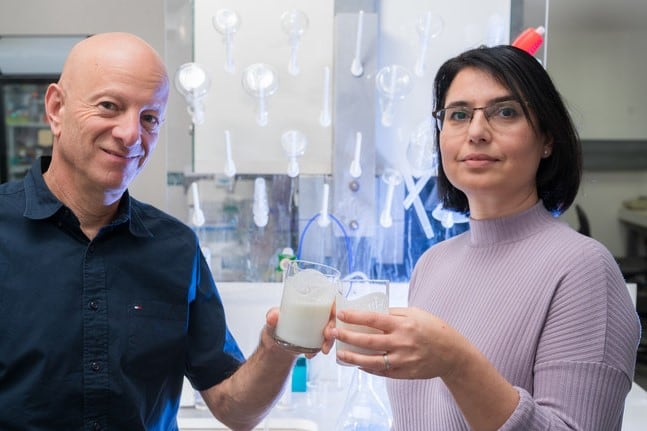The research identified a blend of Streptococcus thermophilus DSM 32245 and Bifidobacterium lactis DSM 32246 amongst other strains as potent enough to reduce mortality rates in subjects being treated for severe pneumonia.
Lead study author Dr Giancarlo Ceccarelli from the Sapienza University of Rome suggested the effect was possibly due to the, “high concentration of bacteria, releasing specific enzymes which modulates the host immune response.”
The research builds on previous findings that pointed to a possible role of the probiotic product Sivomixx 800 as a supplement to hospitalised Covid-19 patients who are also receiving standard care.
Earlier research
In the earlier study, published last year, patients administered the same bacteriotherapy in the intensive care unit (ICU) setting were less likely to be subject to intubation and had reduced levels of diarrhoea.
Pneumonia and gastrointestinal symptoms characteristic of COVID-19 have been noted previously with the lung and gut specifically expressing the ACE2 receptor. In the gut, where this receptor is found, allows the coronavirus to quickly multiply.
Older adults or subjects with diabetes mellitus (DM), hypertension, cerebrovascular disease, and chronic obstructive pulmonary disease (COPD) have a higher risk of death for severe COVID-19 infection possibly due to gut dysbiosis.
Alterations of the gut microbiota and loss of key intestinal bacterial species might be an aid to a dysregulated immune response against the coronavirus.
A team from the University enrolled 200 Covid-19 ICU patients with severe pneumonia on the retrospective, observational cohort study.
A total of 112 received Best Available Treatment (BAT) that included low molecular weight heparin plus one or more between hydroxychloroquine, azithromycin, antivirals, and Tocilizumab.
Furthermore, 88 patients received Sivomixx 800 as complementary treatment in addition to BAT.
The product’s exact formulation blends Streptococcus thermophilus DSM 32245, Bifidobacterium lactis DSM 32246, Bifidobacterium lactis DSM 32247, Lactobacillus acidophilus DSM 32241, Lactobacillus helveticus DSM 32242, Lactobacillus paracasei DSM 32243, Lactobacillus plantarum DSM 32244, and Lactobacillus brevis DSM 27961.
The formulation was administered in three equal doses per day, for a total of 2,400 billion bacteria per day.
Study findings
The research team found a significant difference in mortality rates in evaluated groups, with 30% mortality in those treated with BAT alone and 11% in those treated with BAT plus the Sivomixx 800 bacteriotherapy.
“The significant reduction in risk of death in patients treated with both BAT and oral bacteriotherapy confirms the potential antiviral and anti-inflammatory activity exerted by the bacteria strains contained in Sivomixx 800,” adds Dr Ceccarelli,
“The specific bacterial formulation contained in Sivomixx 800 was previously tested in an Alzheimer’s mouse model and showed a protective role towards neurons and in reducing the inflammation in the brain, thus, supporting also a possible positive effect on the neurological symptoms linked with the infection by Covid-19.”
Discussing the findings, the team found more drugs in combination did not mean a better therapeutic outcome for COVID-19 patients.
“The combinations Hydroxychloroquine with Lopinavir/r and/or Tocilizumab and/or Azithromycin were always less effective in terms of death rate to hydroxychloroquine alone. The key factor for the survival of the patient was oral bacteriotherapy, according to our observations,” they wrote.
“The “zero-mortality” target was achieved in 20 patients (23%) with the combination bacteriotherapy, hydroxychloroquine, and azithromycin and 1 patient (1%) who assumed bacteriotherapy, azithromycin, and tocilizumab.”
Source: Frontiers in Nutrition
Published online: doi: 10.3389/fnut.2020.613928
“Oral Bacteriotherapy in Patients With COVID-19: A Retrospective Cohort Study.”
Authors: G Ceccarelli et al.




